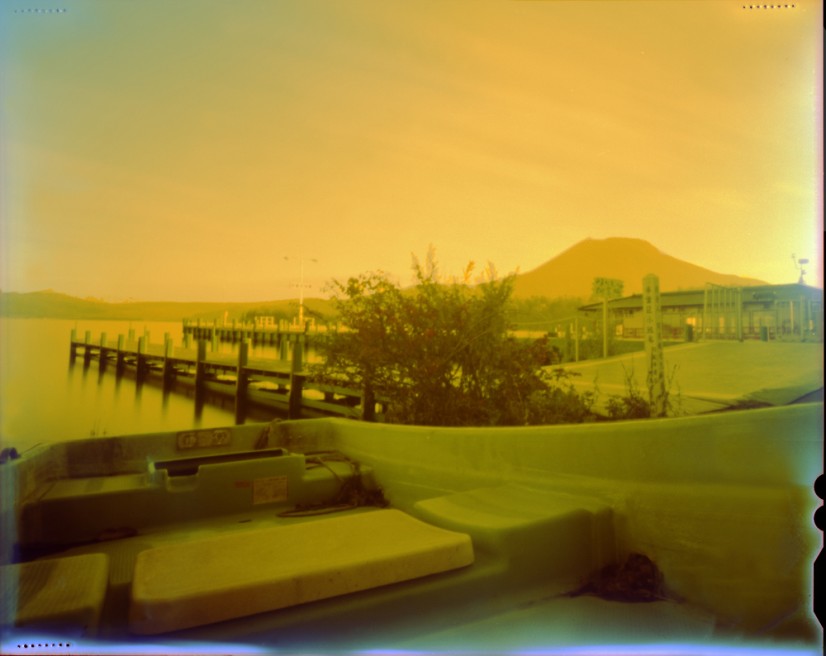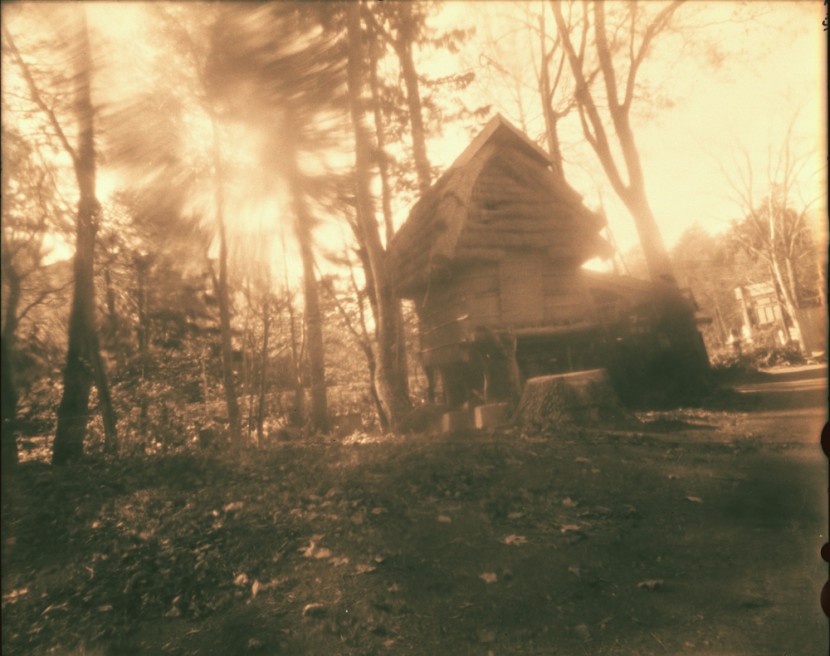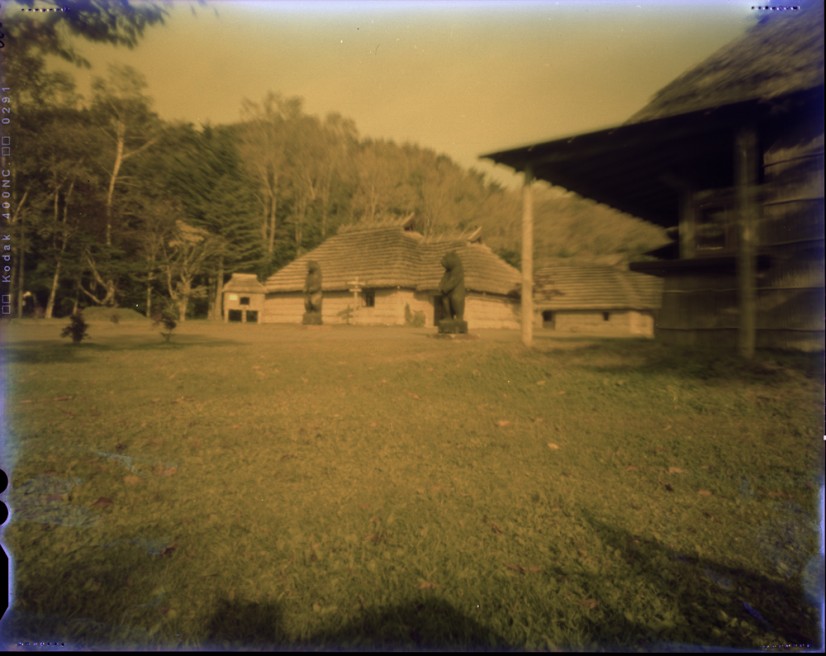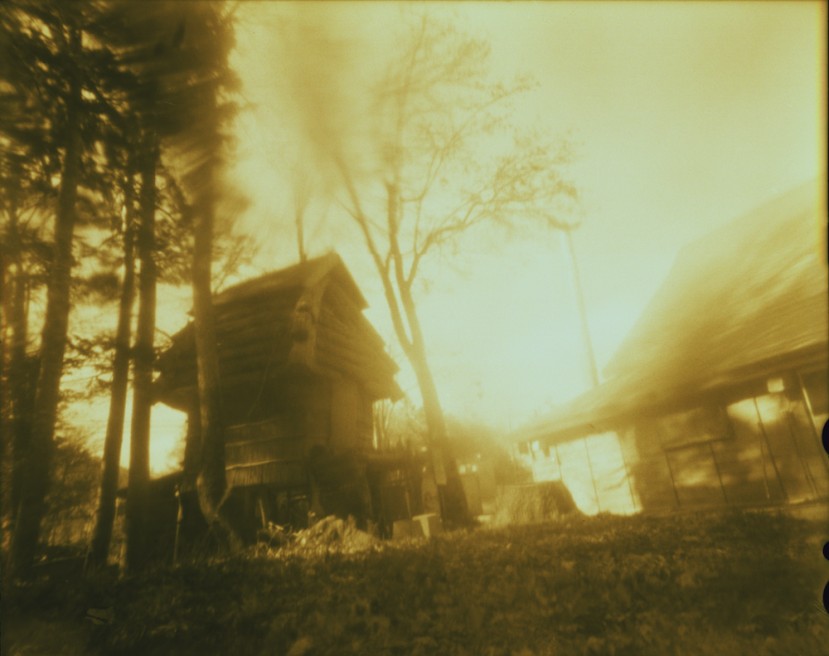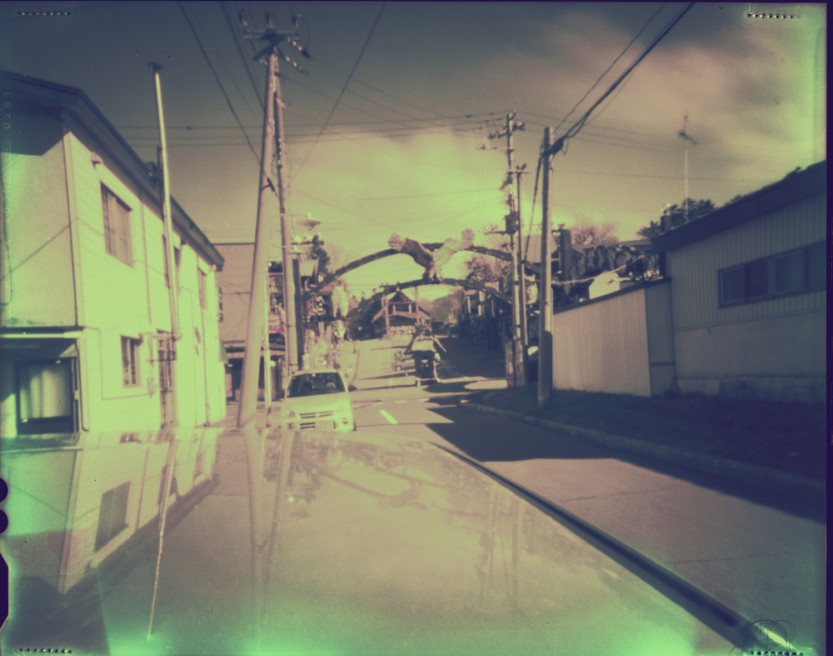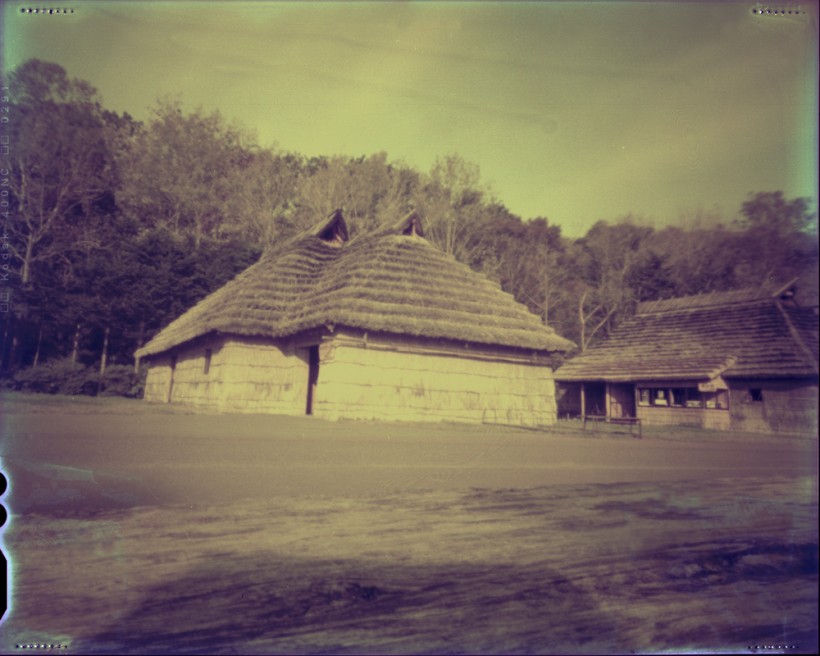These are a few pinhole images taken in Hokkaido, the northernmost island of the Japanese archipelago. The aboriginal people of Japan, the Ainu, have settlements and small museums that serve as living museums of their culture, which had been all but decimated. Happily, there is a renewal of the Ainu language and traditions as the Ainu, like many indigenous people around the world, work to preserve and revive their cultural inheritance. At the beginning of the last century, a young Ainu woman, Chiri Yukie, transcribed the oral tales of her people with romaji, English phonetic script, and translated the Ainu into Japanese. What follows is the introduction to her book.
Broad Hokkaido was long ago the land of our ancestors’ freedom. How blessed they must have been, as innocents in the embrace of a bountiful Nature, living lives free of care, free of stress, truly the beloved children of Nature. Kicking up the deep snow that covered the earth, they traversed mountain after mountain, and hunted bear in winter’s world; all day long to the shrieks of white seagulls, they floated and fished all day long from boats that were the leaves of trees upon summer seas, seas where cool breezes played on green waves; awash in spring’s soft sunlight and accompanied by the everlasting bird song, they labored to gather butterbur and mugwort; they tread through fields of grain and pampas grass while autumnal foliage blazed, catching frogs until evening fell. As the bonfires died and deer called to their mates outside in the valleys, they bound their dreams to the moon. What a joyous life among the creatures calling. For how many decades, even now as was before, have the dreams of this peaceful territory been crushed as in some great rush mountain fields have become villages, villages have become towns, on and on. Great many of our people who had lived happily in the shade of the mountains have disappeared. As this world advances, those of us who remain can only watch with eyes of astonishment; eyes that have lost too the radiance of the beautiful souls of long ago, whose every action was governed by the spirit. We are people filled with anxiety and burning with unrest, our vision is dulled and we cannot see what lies ahead. This makes us wretched beings who are dependent on others for mercy, pitiful beings destined for extinction. Are these to be our epithets? How could our forebears, so blessed where they, ever have imagined their ancestral homes reduced, as easily as dew, to such misery? Time flows without end as the world advances unchecked. As shameful as we have become, we pray earnestly night and day that someday some of us, those with strength-even if only two or three in number-will arise and lead us so that we may keep step with progress. And might not our rich vocabulary, our beloved phrases, the beautiful language our ancestors used to tell us of their daily lives be lost along with defeat? I was born Ainu and grew up in the language of the Ainu, and so have, in my poor way, compiled only some of the varied tales our forefathers and foremothers delighted in telling on a rainy evening, a snowy night or during a bit of rest at noon. If there are many readers who come to know us, the joy of my ancestors’ and myself will be boundless and our happiness will be of the highest order.

